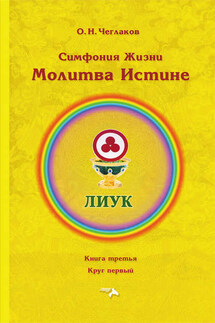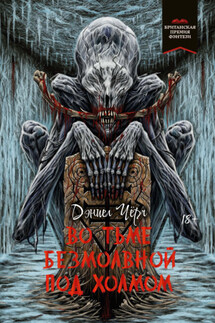The Mystery of the Sea / Тайна моря - страница 3
“Na, na! there is no chance o' ocht aboot the Doom. Them that send forth the Voice and the Seein' know well to whom it is sent and why. Can ye no comprehend that it is for no bairn-play that such goes forth. When the Voice speaks, it is mainly followed by tears an' woe an' lamentation! Nae! nor is it only one bit manifestation that stands by its lanes, remote and isolate from all ither. Truly 'tis but a pairt o' the great scheme o' things; an' be sure that whoso is chosen to see or to hear is chosen weel, an' must hae their pairt in what is to be, on to the verra end.”
“Am I to take it” I asked, “that Second Sight is but a little bit of some great purpose which has to be wrought out by means of many kinds; and that whoso sees the Vision or hears the Voice is but the blind unconscious instrument of Fate?”
“Aye! laddie. Weel eneuch the Fates know their wishes an' their wark, no to need the help or the thocht of any human-blind or seein', sane or silly, conscious or unconscious.”
All through her speaking I had been struck by the old woman's use of the word 'Fate,' and more especially when she used it in the plural. It was evident that, Christian though she might be-and in the West they are generally devout observants of the duties of their creed-her belief in this respect came from some of the old pagan mythologies. I should have liked to question her on this point; but I feared to shut her lips against me. Instead I asked her:
“Tell me, will you, if you don't mind, of some case you have known yourself of Second Sight?”
“'Tis no for them to brag or boast to whom has been given to see the wark o' the hand o' Fate. But sine ye are yerself a Seer an' would learn, then I may speak. I hae seen the sea ruffle wi'oot cause in the verra spot where later a boat was to gang doon, I hae heard on a lone moor the hammerin' o' the coffinwright when one passed me who was soon to dee. I hae seen the death-sark fold round the speerit o' a drowned one, in baith ma sleepin' an' ma wakin' dreams. I hae heard the settin' doom o' the Spaiks, an' I hae seen the Weepers on a' the crood that walked. Aye, an' in mony anither way hae I seen an' heard the Coming o' the Doom.”
“But did all the seeings and hearings come true?” I asked. “Did it ever happen that you heard queer sounds or saw strange sights and that yet nothing came of them? I gather that you do not always know to whom something is going to happen; but only that death is coming to some one!” She was not displeased at my questioning but replied at once:
“Na doot! but there are times when what is seen or heard has no manifest following. But think ye, young sir, how mony a corp, still waited for, lies in the depths o' the sea; how mony lie oot on the hillsides, or are fallen in deep places where their bones whiten unkent. Nay! more, to how many has Death come in a way that men think the wark o' nature when his hastening has come frae the hand of man, untold.” This was a difficult matter to answer so I changed or rather varied the subject.
“How long must elapse before the warning comes true?”
“Ye know yersel', for but yestreen ye hae seen, how the Death can follow hard upon the Doom; but there be times, nay mostly are they so, when days or weeks pass away ere the Doom is fulfilled.”
“Is this so?” I asked “when you know the person regarding whom the Doom is spoken.” She answered with an air of certainty which somehow carried conviction, secretly, with it.









